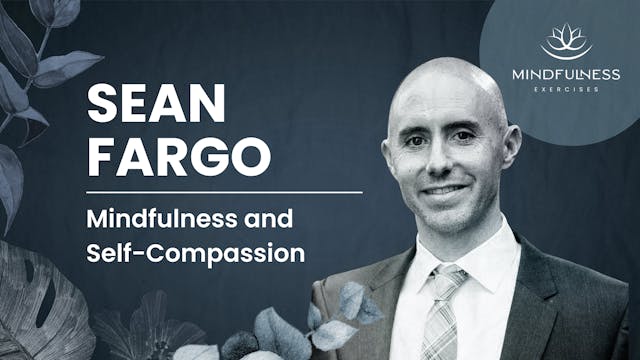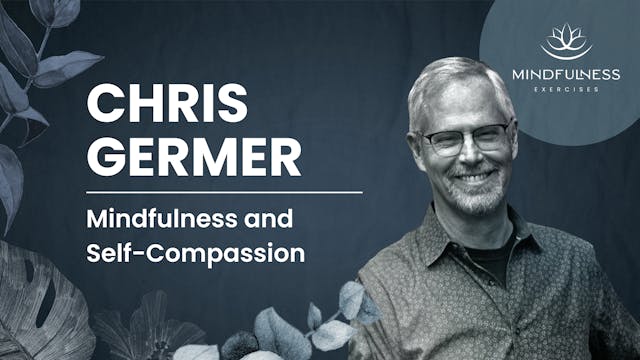Self-Empathy & Self-Empowerment - Myra Walden
Feel More Love, Forgiveness, Gratitude & Joy
•
2h 46m
Originally from Mexico, Myra Walden holds a bachelor’s degree in psychology from the University of Illinois at Chicago and a master’s degree in clinical psychology from the Illinois School of Professional Psychology. She has practiced psychotherapy since 1991 and has offered workshops for mental health professionals since 1997. In 2000, Myra became a certified trainer with the Center for Nonviolent Communication. She worked alongside Marshall Rosenberg, the developer of Nonviolent Communication, in multiple International Intensive Trainings. Myra co-founded the Institute for Empowering Communication and wrote Empowerment Therapy. She lives in West Chicago, Illinois where she enjoys people and nature.
Learn more about Myra Walden: https://empoweringcommunicationinc.net/about
00:01:59 – Sean introduces Myra Walden and Bob Wentworth
00:06:00 – Introduction from Myra
00:09:01 – Inner silence meditation led by Myra
00:17:18 – Reflections after the guided meditation
00:21:10 – Why we want to share this with you (self-empathy and self-empowerment process)
00:21:58 – Bob opens up about his journey (depression, searching for what could make life more satisfying, nonviolent communication and loving kindess)
00:26:18 – Myra opens up about her experience and her desire to share nonviolent communication (NVC) for the rest of her life
00:29:08 – A mini meditation: What gets in the way of loving yourself unconditionally?
00:32:24 – Goals for the session – the process of self-empathy and empowerment (SEE)
00:33:42 – The value of taking pauses before we speak
00:35:40 – What is self-empathy?
00:42:44 – Explanation and modeling of the ‘universal needs alive’ practice
00:52:14 – Reflections on the practice
00:54:28 – This practice is not about noticing if a need is met; it’s about noticing if a need is alive
00:58:52 – Watching for and relating to needs
01:03:45 – Mainstream cultural relationship to needs (it can be regarded as undesirable to have needs)
01:08:01 – Introduction to the self-empathy and empowerment process
01:12:40 – Step one: Situation (Writing down what happened without interpretations)
01:16:20 – The beauty of separating observation from interpretation
01:17:30 – Step two: Judging and Blaming
01:20:02 – Step three: Sensations (Bringing attention to somatic experience)
01:21:37 – Why is it important to be in touch with the body?
01:27:07 – Step four: Feelings (What are feelings?)
01:30:17 – Step five: Needs (The importance and difficulties of knowing our needs)
01:37:16 – Step six: Mourning
01:40:49 – Step seven: Inner Silence
01:43:49 – Exercise of exploring an unmet need
01:49:42 – Reflections on the exercise
01:54:44 – Entering into the mourning process
01:58:11 – Connecting to needs is not just conceptual; it is energetic
02:05:18 – Step eight: Strategy (Connecting with intuition)
02:11:44 – Guided self-empathy and self-empowerment process
02:28:47 – Reflections after the guided process
02:45:30 – Closing words from Myra and Bob
Up Next in Feel More Love, Forgiveness, Gratitude & Joy
-
Mindfulness and Self-Compassion - Sea...
After deeply immersing himself in mindfulness practice as a Buddhist monk in Thailand, Sean Fargo noticed a shift in the way he related to himself and others that he wanted to bring to the communities around him. Since then, he has spent the last 10 years focused on building out mindfulness pract...
-
Mindfulness and Self-Compassion - Chr...
Chris first learned mindfulness meditation at a hermitage in Sri Lanka in 1977. His interest in mindfulness was rekindled in 1985 when he joined a study group in Cambridge that became the Institute for Meditation and Psychotherapy. Decades of conversations came together in 2005 with the publishin...
-
Compassionate Self-Inquiry - Byron Katie
In 1986, at the bottom of a ten-year spiral into depression and self-loathing, Byron Katie woke up one morning in a state of joy. She realized that when she believed her stressful thoughts, she suffered, but that when she questioned them, she didn’t suffer, and that this is true for every human b...



